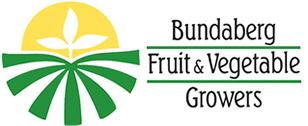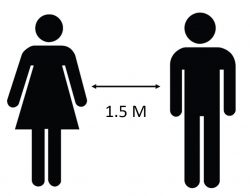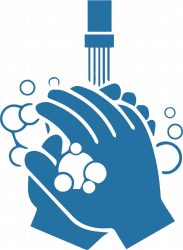COVID-19 Farm Guide
UNDERSTANDING COVID-19
Symptoms of COVID-19 range from mild illness to fatal pneumonia and include fever, coughing, sore throat, fatigue and shortness of breath.
Queensland Health have more information available on COVID-19 signs and symptoms.
- Fever – A normal temperature will range between 36-37oC
- Flu-like symptoms, such as coughing or sneezing
- Difficulty breathing, which may develop into pneumonia
- Sore throat
- Fatigue
Not sure of your symtoms? Take the COVID-19 Health Quiz HERE
HOW TO MINIMISE RISKS OF COVID-19 WHILST ON YOUR FARM
COVID-19 Support Updates
Border Restrictions and Entry Requirements
[Source: Queensland Government]
- Identified Hotspots, entry into Queensland is not allowed if a person has been in a hotspot in the last 14days
- People who have been in a COVID-19 hotspot in the last 14 days will only be able to enter Queensland if they are a returning Queensland resident, a new Queensland resident, or under an exemption for essential activities. More info
- All other visitors to Queensland require a valid border declaration pass
Reducing workforce impacts related to COVID-19
Isolation for Coronavirus
[Source: Australian Government, Department of Health]
A person with COVID-19 or who is suspected to have it must go into mandatory isolation as directed by their public health authority. Read more about what isolation is, steps you should take while in isolation, and what to do if you live with someone in isolation.
Visit the website for more information HERE
Coronavirus and workplace laws
[Source: Fairwork Ombudsman]
The Fairwork website covers workplace laws, obligations and entitlements for:
- employers and employees affected by coronavirus (COVID-19)
- employers and employees participating in the JobKeeper scheme
Visit the website for more information HERE
National COVID-19 safe workplace principles
[Source: Safe Work Australia]
- Workplace Guidelines
- Printable Guides and resources
Visit the website for more information HERE
COVID-19 workplace risk management
[Source: Worksafe Queensland]
- Provide hand washing facilities and make sure these are kept clean, properly stocked and in good working order.
- Provide alcohol-based hand sanitiser, tissues and cleaning supplies.
- Promote good hygiene practices, e.g. hygiene display posters.
- Keep the workplace clean and hygienic.
- Managing the work environment and facilities guide DOWNLOAD
Learn more HERE
Getting your workplace ready for COVID-19
[Source: World Health Organization]
Employers should start doing these things now, even if COVID-19 has not arrived in the communities where they operate. They can already reduce working days lost due to illness and stop or slow the spread of COVID-19 if it arrives at one of your workplaces.
Download guide HERE
Quarantine for Coronavirus
[Source: Australian Government, Department of Health]
Quarantine is when you are well but may have been in contact with someone with COVID-19. In such cases, you must stay in quarantine for 14 days to prevent the spread of the virus. Read more about what quarantine is, who must go into quarantine, and what to do if you live with someone in quarantine.
Visit the website for more information HERE
Changes to Visa Conditions
[Source: Department of Home Affairs]
- Seasonal worker programme and pacific islander scheme workers can extend their stay for up to 12mths for approved employers
- Working holiday makers (WHM) will be exempt from the conditions of working with one employer for more than 6mths and may be eligible for afurther visa if their visa is due to expire in the next 6mths.
View Visa condition information HERE
COVID-19 Guidelines for the fresh produce industry
[Source: PMA-ANZ]
- Ensuring the ongoing supply of fresh produce to Australian and New Zealnd consumbers, thereby supporting good nutrition and food security in this challenging time
- Facilitating, as far as possible, business continuity, thereby ensuring businesses survive and there is ongoing job security for you workforce
Download the PDF
Isolation for Coronavirus
[Source: Australian Government, Department of Health]
A person with COVID-19 or who is suspected to have it must go into mandatory isolation as directed by their public health authority. Read more about what isolation is, steps you should take while in isolation, and what to do if you live with someone in isolation.
Visit the website for more information HERE
Quarantine for Coronavirus
[Source: Australian Government, Department of Health]
Quarantine is when you are well but may have been in contact with someone with COVID-19. In such cases, you must stay in quarantine for 14 days to prevent the spread of the virus. Read more about what quarantine is, who must go into quarantine, and what to do if you live with someone in quarantine.
Visit the website for more information HERE
Disclaimer
BFVG continues to update the information on our website as the COVID-19 situation develops and information is made available to us. The content provided is current as at the time of the last update. It should not be viewed as legal advice but represents information collated through the BFVG networks and freely available content from relevant informants. We encourage you to regularly check this page for more information and if doubt to seek appropriate advice related to your query.




